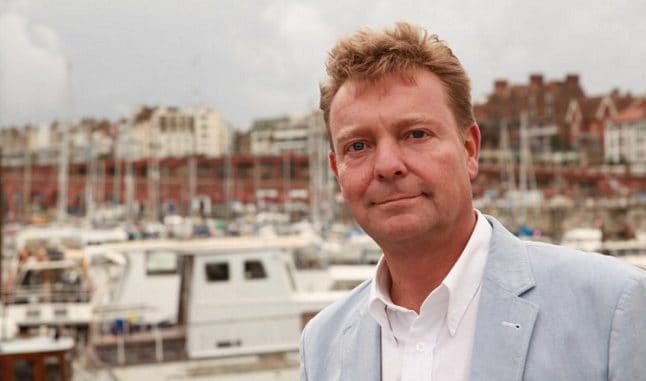
A new trial date is due to be set to hear the case of South Thanet MP Craig Mackinlay and two former aides on charges of knowingly making false declarations in relation to election expenses, or aiding and abetting or encouraging or assisting such offences.
Mr Mackinlay, 50, election agent Nathan Gray, 28, and party activist Marion Little, 62, were each charged with offences under the Representation of the People Act 1983 in relation to expense declarations during the 2015 General Election.
The trial had been due to begin at Southwark Crown Court on May 14 and was scheduled for six weeks.
A pre-trial appeal was heard by Lady Hale (President), Lord Mance, Lord Hughes, Lord Hodge and Lord Lloyd-Jones at the Supreme Court. A judgement on that appeal has today (July 25) been issued.
The appeal asked the court to determine a point of law on a preparatory hearing.
The question of law certified by the Court of Appeal (Criminal Division) was:
“Do property, goods, services or facilities transferred to or provided for the use or benefit of a candidate free of charge or at a discount only fall to be declared as election expenses if they have been authorised by the candidate, his election agent or someone authorised by either or both of them?”
The question was in relation to the possibility of overlapping national and local expenses during election campaigns and notional expenditure.
The court decided the answer was no and has as such allowed the appeal by the Crown Prosecution Service.
The submission from the Crown was that campaigning activity undertaken in a constituency by the central national party may be free or discounted services within section 90C, and thus be accountable for by the candidate, whenever:
(i) it amounts to services “provided for the use or benefit of the candidate” and
(ii) they were “made use of by or on behalf of the candidate” and
(iii) they were so made use of “in circumstances such that if any expenses were to be … actually incurred by or on behalf of the candidate in respect of that use, they would be … election expenses incurred by or on behalf of the candidate”.
If those three conditions are met, say the Crown, the expenses are to be “treated … as incurred by the candidate” and must be declared as such by his election agent.
The defendants contended that such campaigning by the national party cannot amount to election expenses for which the candidate has to account unless he or his agent, or someone authorised by either of them, has authorised the expenditure. Authorisation is, said the defendants, a central feature, throughout the legislation, of responsibility for electioneering expenses.
The judgment in relation to the point of law says: “The Supreme Court unanimously allows the appeal, answering the certified question in the negative. Lord Hughes gives the judgment with which the other justices agree.”
A new trial date is expected shortly.

